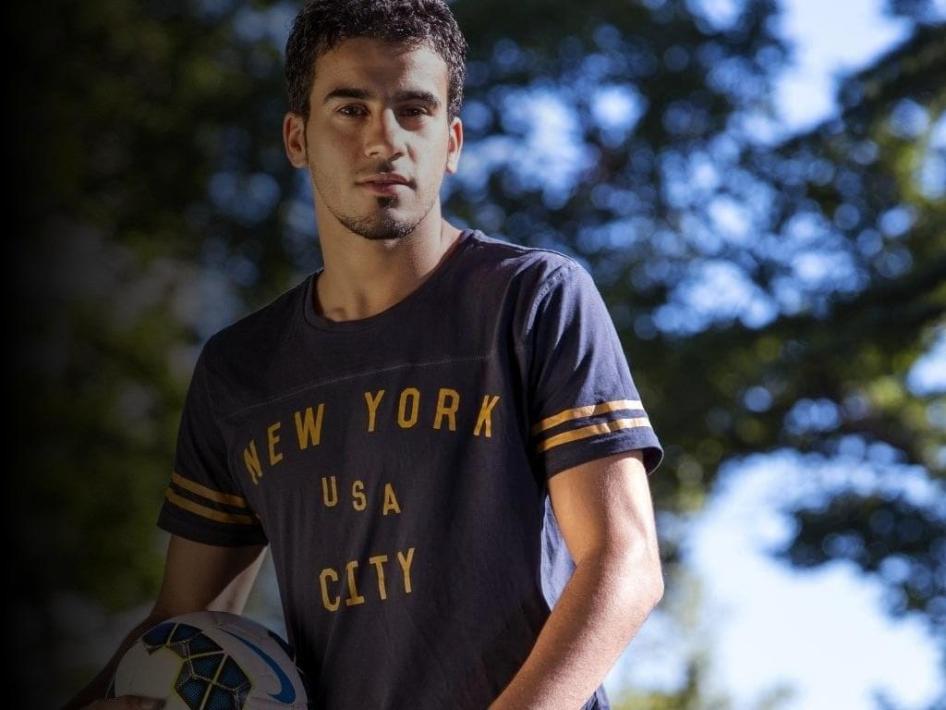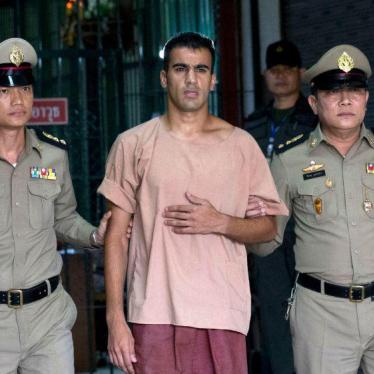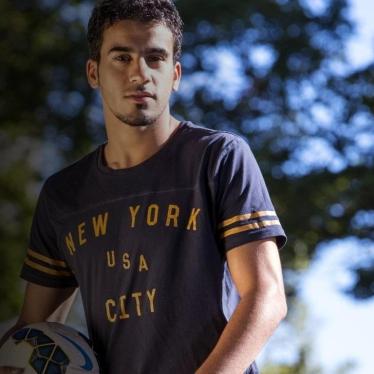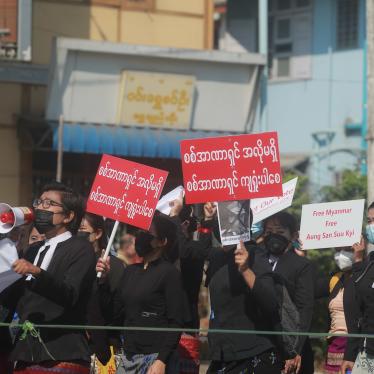(New York) – Thailand has freed a Bahraini refugee football player threatened with extradition since November 2018 following global pressure from athletes, sports federations, and rights groups, Human Rights Watch said today.
On February 11, 2019, Thai prosecutors dropped their extradition case against Hakeem Al-Araibi, sought by Bahrain, and allowed him to fly to Australia, where he has refugee status. Leaders of football’s global governing body, Fédération Internationale de Football Association (FIFA), and the International Olympic Committee (IOC), had publicly called for his release.
"Hakeem Al-Araibi is a refugee whose detention and threatened deportation was a grave injustice,” said Minky Worden, director of global initiatives. “FIFA and the IOC deserve credit for applying their new human rights policies to help gain Al-Araibi’s release and his return home to Australia.”
Thai authorities had detained Al-Araibi on a wrongful Interpol “Red Notice” seeking his return to Bahrain, where he had been tortured and feared for his life.
Al-Araibi, a former member of Bahrain’s national football team, was detained and tortured following the 2011 Arab Spring protests there. He fled the country and reached Australia, where he was granted refugee status. He currently plays for the professional Pascoe Vale Football Club in Melbourne.
Al-Araibi’s release shows the power of collective action by athletes, governments, nongovernmental organizations, United Nations agencies, players’ unions, and sports federations to address rights issues, Human Rights Watch said. Unfortunately, other Bahrainis who did not benefit from the urgent mobilization of the global sports and human rights community have been returned to reportedly face torture and mistreatment. Other refugees in Thailand, notably ethnic Uyghurs from China, have been forcibly returned to face a real risk of torture and persecution.
“Hakeem Al-Araibi’s freedom was secured with strong pressure from athletes, FIFA, the IOC, and the global rights movement,” Worden said. “But Al-Araibi’s case has also spotlighted gaps in FIFA’s system of human rights protections, and the need to ensure that human rights policies and practices are fully implemented.”
In 2017, FIFA appointed a Human Rights Advisory board, created a Human Rights Policy, and in 2018, opened a complaints system for human rights defenders and journalists who consider their rights to have been violated while performing work related to FIFA’s activities. The new Centre for Sport and Human Rights and FIFA’s Human Rights Advisory board were very involved in seeking Al- Araibi’s release, including with a letter from FIFA’s secretary general.
“FIFA and the IOC are starting to understand that sports federations’ interests align with rights defenders and the victims of abuses,” Worden said. “This case should encourage FIFA to tackle other serious human rights abuses in the world of football, including to stop sexual and other abuse in the sport.”








